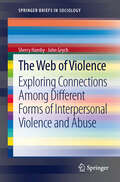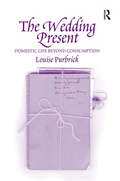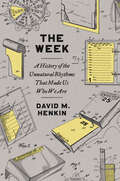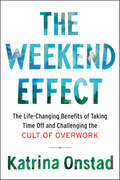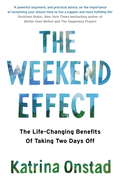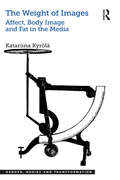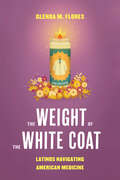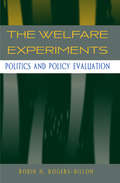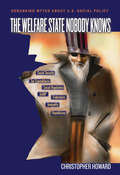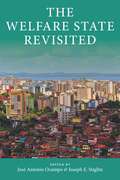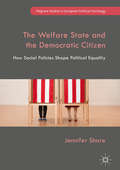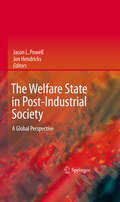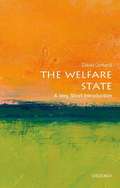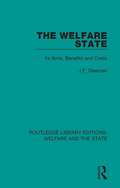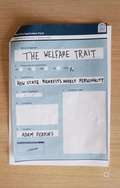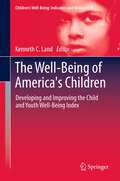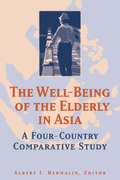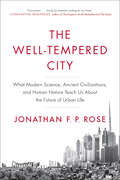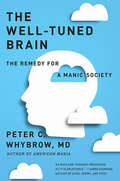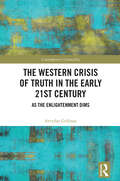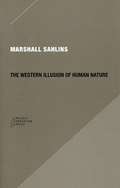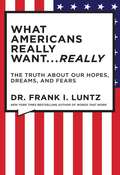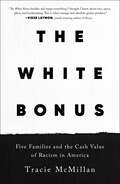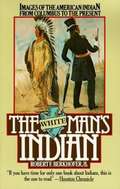- Table View
- List View
The Web of Violence
by John Grych Sherry HambyThere is an increasing appreciation of the interconnections among all forms of violence. These interconnections have critical implications for conducting research that can produce valid conclusions about the causes and consequences of abuse, maltreatment, and trauma. The accumulated data on co-occurrence also provide strong evidence that prevention and intervention should be organized around the full context of individuals' experiences, not narrowly defined subtypes of violence. Managing the flood of new research and practice innovations is a challenge, however. New means of communication and integration are needed to meet this challenge, and the Web of Violence is intended to contribute to this process by serving as a concise overview of the conceptual and empirical work that form a basis for understanding the interconnections across forms of violence throughout the lifespan. It also offers ideas and directions for prevention, intervention, and public policy. A number of initiatives are emerging to integrate the findings on co-occurrence into research and action. The American Psychological Association established a new journal, Psychology of Violence, which is a forum for research on all types of violence. Sherry Hamby is the founding editor and John Grych is associate editor and co-editor of a special issue on the co-occurrence of violence in 2012. Dr. Hamby also is a co-investigator of the National Survey of Children's Exposure to Violence (NatSCEV), which has drawn attention to polyvictimization. Polyvictimization is a focus of the U.S. Department of Justice's Defending Childhood Initiative and has recently been featured in calls for grant proposals by the Office of Victims of Crime and National Institutes for Justice.
The Wedding Present: Domestic Life Beyond Consumption
by Louise PurbrickIn this fascinating work, Louise Purbrick offers an alternative analysis of contemporary domestic consumption. She investigates the ritualized presentation of objects upon marriage, and their subsequent cycles of exchange within the domestic sphere. Focusing on gift-giving in Britain from 1945 to the present, comparative context is provided by material from North America and Europe. Presenting new material on the enactment of exchange relationships within everyday domesticity, the book makes significant historical, theoretical and methodological contributions to the analysis of contemporary consumption. It also re-evaluates consumption theory as well as examining the methodology of recent studies in consumption and domesticity, pressing for a more rigorous approach to the use of case studies. By considering how the specific contexts in which consumption occurs, such as married domesticity, can limit possible versions of selfhood, The Wedding Present tests the assumption that consuming creates individual identities. Thus, the book argues, consumption cannot be isolated as an explanation of individual or social formation.
The Week: A History of the Unnatural Rhythms That Made Us Who We Are
by David M HenkinAn investigation into the evolution of the seven-day week and how our attachment to its rhythms influences how we live We take the seven-day week for granted, rarely asking what anchors it or what it does to us. Yet weeks are not dictated by the natural order. They are, in fact, an artificial construction of the modern world. With meticulous archival research that draws on a wide array of sources—including newspapers, restaurant menus, theater schedules, marriage records, school curricula, folklore, housekeeping guides, courtroom testimony, and diaries—David Henkin reveals how our current devotion to weekly rhythms emerged in the United States during the first half of the nineteenth century. Reconstructing how weekly patterns insinuated themselves into the social practices and mental habits of Americans, Henkin argues that the week is more than just a regimen of rest days or breaks from work, but a dominant organizational principle of modern society. Ultimately, the seven-day week shapes our understanding and experience of time.
The Weekend Effect: The Life-Changing Benefits of Taking Time Off and Challenging the Cult of Overwork
by Katrina OnstadEncroaching work demands—coupled with domestic chores, overbooked schedules, and the incessant pinging of our devices—have taken a toll on what used to be our free time: the weekend. With no space to tune out and recharge, every aspect of our lives is suffering: our health is deteriorating, our social networks (the face-to-face kind) are dissolving, and our productivity is down. The notion of working less and living more, once considered an American virtue, has given way to the belief that you must be “on” 24/7.Award-winning journalist Katrina Onstad, pushes back against this all-work, no-fun ethos. Tired of suffering from Sunday night letdown, she digs into the history, positive psychology, and cultural anthropology of the great missing weekend and how we can revive it. Onstad follows the trail of people, companies, and countries who are vigilantly protecting their time off for joy, adventure, and most important, purpose. Filled with personal and professional inspiration, The Weekend Effect is a thoughtful, well-researched argument to take back those precious 48 hours, and ultimately, to save ourselves.
The Weekend Effect: The Life-Changing Benefits of Taking Two Days Off
by Katrina Onstad'A powerful argument, and practical advice, on the importance of reclaiming your leisure time to live a happier and more fulfilling life' - Gretchen Rubin, New York Times bestselling author of Better Than Before and The Happiness ProjectEncroaching work demands - coupled with domestic chores, overbooked schedules, and the incessant pinging of our devices - have taken a toll on what used to be our free time: the weekend. With no space to tune out and recharge, every aspect of our lives is suffering: our health is deteriorating, our social networks (the face-to-face kind) are dissolving and our productivity is down. The notion of working less and living more has given way to the belief that you must be 'on' 24/7.Tired of suffering from Sunday-night let down, award-winning journalist Katrina Onstad pushes back against this all-work-no-fun ethos. Onstad follows the trail of people, companies and countries vigilantly protecting their time off for joy, adventure and meaning, and digs into the history, positive psychology and cultural anthropology of the great missing weekend. The Weekend Effect reveals that taking back those precious forty-eight hours is the key to increasing joy, creativity, productivity and success. It will be your persuasive, practical and much-needed guide to reclaiming your time off and, ultimately, saving yourself.
The Weight of Images: Affect, Body Image and Fat in the Media (Gender, Bodies and Transformation)
by Katariina KyröläThe Weight of Images explores the ways in which media images can train their viewers’ bodies. Proposing a shift away from an understanding of spectatorship as being constituted by acts of the mind, this book favours a theorization of relations between bodies and images as visceral, affective engagements that shape our body image - with close attention to one particularly charged bodily characteristic in contemporary western culture: fat. The first mapping of the ways in which fat, gendered bodies are represented across a variety of media forms and genres, from reality television to Hollywood movies, from TV sitcoms to documentaries, from print magazine and news media to online pornography, The Weight of Images contends that media images of fat bodies are never only about fat; rather, they are about our relation to corporeal vulnerability overall. A ground-breaking volume, engaging with a rich variety of media and cultural texts, whilst examining the possibilities of critical auto-ethnography to unravel how body images take shape affectively between bodies and images, this book will appeal to scholars and students of sociology, media, cultural and gender studies, with interests in embodiment and affect.
The Weight of the White Coat: Latinos Navigating American Medicine
by Glenda M. FloresLittle has been written about Latina/o physicians as students, people, or workers in a high-skill occupation in the United States. The Weight of the White Coat traces the life stages that Latina/o physicians follow and the social mechanisms that shape their careers, from the role of the family to different educational trajectories and even the practice of medicine. Glenda M. Flores turns a careful eye to this diverse pan-ethnic group in an elite profession, observing how demographic characteristics such as gender and ethnicity act like cumulative weights in their coat pockets, producing hindrances for some and elevating others as they provide care in poor and wealthy communities. Here, the high occupational status of Latina/o doctors offers a unique lens for examining the varied experiences of physicianhood and the still unsettled contours of Latinidad.
The Welfare Experiments
by Robin Rogers-DillonWelfare experiments conducted at the state level during the 1990s radically restructured the American welfare state and have played a critical--and unexpected--role in the broader policymaking process. Through these experiments, previously unpopular reform ideas, such as welfare time limits, gained wide and enthusiastic support. Ultimately, the institutional legacy of the old welfare system was broken, new ideas took hold, and the welfare experiments generated a new institutional channel in policymaking. In this book, Rogers-Dillon argues that these welfare experiments were not simply scientific experiments, as their supporters frequently contend, but a powerful political tool that created a framework within which few could argue successfully against the welfare policy changes. Legislation proposed in 2002 formalized this channel of policymaking, permitting the executive, as opposed to legislative, branches of federal and state governments to renegotiate social policies--an unprecedented change in American policymaking. This book provides unique insight into how social policy is made in the United States, and how that process is changing.
The Welfare Experiments: Politics and Policy Evaluation
by Robin H. Rogers-DillonWelfare experiments conducted at the state level during the 1990s radically restructured the American welfare state and have played a critical—and unexpected—role in the broader policymaking process. Through these experiments, previously unpopular reform ideas, such as welfare time limits, gained wide and enthusiastic support. Ultimately, the institutional legacy of the old welfare system was broken, new ideas took hold, and the welfare experiments generated a new institutional channel in policymaking. In this book, Rogers-Dillon argues that these welfare experiments were not simply scientific experiments, as their supporters frequently contend, but a powerful political tool that created a framework within which few could argue successfully against the welfare policy changes. Legislation proposed in 2002 formalized this channel of policymaking, permitting the executive, as opposed to legislative, branches of federal and state governments to renegotiate social policies—an unprecedented change in American policymaking. This book provides unique insight into how social policy is made in the United States, and how that process is changing.
The Welfare State Nobody Knows: Debunking Myths about U.S. Social Policy
by Christopher HowardThe Welfare State Nobody Knows challenges a number of myths and half-truths about U.S. social policy. The American welfare state is supposed to be a pale imitation of "true" welfare states in Europe and Canada. Christopher Howard argues that the American welfare state is in fact larger, more popular, and more dynamic than commonly believed. Nevertheless, poverty and inequality remain high, and this book helps explain why so much effort accomplishes so little. One important reason is that the United States is adept at creating social programs that benefit the middle and upper-middle classes, but less successful in creating programs for those who need the most help. This book is unusually broad in scope, analyzing the politics of social programs that are well known (such as Social Security and welfare) and less well known but still important (such as workers' compensation, home mortgage interest deduction, and the Americans with Disabilities Act). Although it emphasizes developments in recent decades, the book ranges across the entire twentieth century to identify patterns of policymaking. Methodologically, it weaves together quantitative and qualitative approaches in order to answer fundamental questions about the politics of U.S. social policy. Ambitious and timely, The Welfare State Nobody Knows asks us to rethink the influence of political parties, interest groups, public opinion, federalism, policy design, and race on the American welfare state.
The Welfare State Revisited (Initiative for Policy Dialogue at Columbia: Challenges in Development and Globalization)
by Joseph E. Stiglitz José Antonio OcampoThe welfare state has been under attack for decades, but now more than ever there is a need for strong social protection systems—the best tools we have to combat inequality, support social justice, and even improve economic performance. In this book, José Antonio Ocampo and Joseph E. Stiglitz bring together distinguished contributors to examine the global variations of social programs and make the case for a redesigned twenty-first-century welfare state.The Welfare State Revisited takes on major debates about social well-being, considering the merits of universal versus targeted policies; responses to market failures; integrating welfare and economic development; and how welfare states around the world have changed since the neoliberal turn. Contributors offer prescriptions for how to respond to the demands generated by demographic changes, the changing role of the family, new features of labor markets, the challenges of aging societies, and technological change. They consider how strengthening or weakening social protection programs affects inequality, suggesting ways to facilitate the spread of effective welfare states throughout the world, especially in developing countries. Presenting new insights into the functions the welfare state can fulfill and how to design a more efficient and more equitable system, The Welfare State Revisited is essential reading on the most discussed issues in social welfare today.
The Welfare State and the Democratic Citizen: How Social Policies Shape Political Equality (Palgrave Studies in European Political Sociology)
by Jennifer ShoreThis book examines the ways in which the welfare state impacts levels and distributions of political participation and democratic support in Western democracies. Going beyond the traditional contextual accounts of political behaviour, which primarily focus on political institutions or the socio-economic climate, this book looks specifically at the impact of public policy on a variety of political behaviours and attitudes. Drawing on the theoretical insights from the policy feedback approach, the author argues and empirically demonstrates that generous social policy offerings can not only foster democratic citizenship by promoting a more inclusive political culture, but are most beneficial to citizens who are otherwise excluded from political life in many other societies. This book will appeal most to scholars in the fields of political science and sociology who are especially interested in the welfare state, public policy, political sociology, and inequality.
The Welfare State in Post-Industrial Society
by Jon Hendricks Jason L. PowellIn recent years, major social forces such as: ageing populations, social trends, migration patterns, and the globalization of economies, have reshaped social welfare policies and practices across the globe. Multinational corporations, NGOs, and other international organizations have begun to influence social policy at a national and local level. Among the many ramifications of these changes is that globalizing influences may hinder the ability of individual nation-states to effect policies that are beneficial to them on a local level. With contributions from thirteen countries worldwide, this collected work represents the first major comparative analysis on the effect of globalization on the international welfare state. The Welfare State in Post-Industrial Society is divided into two major sections: the first draws from a number of leading social welfare researchers from diverse countries who point to the nation-state as case studies; highlighting how it goes about establishing and revising social welfare provisions. The second portion of the volume then moves to a more global perspective in its analysis and questioning of the impact of globalization on citizenship, ageing and marketization. The Welfare State in Post-Industrial Society seeks to encourage debate about the implications of the most pressing social welfare issues in nation-states, and integrate analyses of policy and practice in particular countries struggling to provide social welfare support for their needy populations.
The Welfare State: A Very Short Introduction (Very Short Introductions)
by David Garland<p>Welfare states vary across nations and change over time. And the balance between markets and government; free enterprise and social protection is perennially in question. But all developed societies have welfare states of one kind or another - they are a fundamental dimension of modern government. And even after decades of free-market criticism and reform, their core institutions have proven resilient and popular. <p>This Very Short Introduction describes the modern welfare state, explaining its historical and contemporary significance and arguing that far from being 'a failure' or 'a problem', welfare states are an essential element of contemporary capitalism, and a vital concomitant of democratic government. In this accessible and entertaining account, David Garland cuts through the fog of misunderstandings to explain in clear and simple terms, what welfare states are, how they work, and why they matter.</p>
The Welfare State: Its Aims, Benefits and Costs (Routledge Library Editions: Welfare and the State #18)
by J.F. SleemanOriginally published in 1973, The Welfare State traces the historical roots of the Welfare State and considers the problems to which it gives rise, especially in the allocation of resources. It focuses on the economic issue of meeting needs with scarce resources and compares the British experience with that of other countries. It sets out the pattern of the social services since Beveridge and summarises the criticisms levelled at them. It considers the economic issues involved and provides a straightforward presentation of the available policy choices, the discussion poses a direct comparison with other countries. The book offers an overall conspectus of current policy issues against the historical background from which they arise.
The Welfare Trait: How State Benefits Affect Personality
by Adam PerkinsThe welfare state has a problem: each generation living under its protection has lower work motivation than the previous one. In order to fix this problem we need to understand its causes, lest the welfare state ends up undermining its own economic and social foundations. In The Welfare Trait, award-winning personality researcher Dr Adam Perkins argues that welfare-induced personality mis-development is a significant part of the problem. In support of his theory, Dr Perkins presents data showing that the welfare state can boost the number of children born into disadvantaged households, and that childhood disadvantage promotes the development of an employment-resistant personality profile, characterised by aggressive, antisocial and rule-breaking tendencies. The book concludes by recommending that policy should be altered so that the welfare state no longer increases the number of children born into disadvantaged households. It suggests that, without this change, the welfare state will erode the nation's work ethic by increasing the proportion of individuals in the population who possess an employment-resistant personality profile, due to exposure to the environmental influence of disadvantage in childhood.
The Well-Being of America's Children
by Kenneth C. LandIn 1998, the Foundation for Child Development (FCD) provided Kenneth Land a grant to explore the feasibility of producing the first national composite index of the status of American children that would chart changes in their well-being over time. Important questions needed to be answered: was it possible to trace trends in child and youth well-being over several decades? Could such an index provide a way of determining whether the United States was making progress in improving its children's lives? The Index of Child and Youth Well-Being (CWI) was born from these questions. Viewing the CWI trends from 1975 to present, there is evidence that the well-being of American children lags behind other Western nations. As conditions change, it is clear that the index is an evolving and rich enterprise. This volume attests to that evolution, and what the CWI promises for understanding the progress - or lack of progress - in enhancing the life prospects of all American children.
The Well-Being of the Elderly in Asia: A Four-Country Comparative Study
by Albert I. HermalinThe past two decades have witnessed rapid social, economic, and demographic change in East and South-East Asia. The older populations in these regions have been increasing faster than in the West, and the proportions of people over sixty will more than double over the next thirty years. Increased urbanization and educational levels and a strong shift to professional, technical, manufacturing, and service occupations are changing the social and economic landscape, leading to concern for the well-being of the elderly, who traditionally have relied on the family for support. Governments are attempting to preserve these traditions while taking into account widespread family change and new expectations for pension, health insurance, and other public programs. The contributors to this volume use survey and other data collected over ten years to examine the well-being of the current older population in four Asian countries: The Philippines, Singapore, Taiwan, and Thailand. Each major analytic chapter looks at a key dimension of well-being--economic, physical and mental health, work and leisure--and how these are affected by the familial and social support arrangements, as well as age, gender, education, and urban-rural residence. Where possible, changes over time are traced. Explicit attention is given to the policies and programs in place and under development in each country and to the cultural accommodations underway. The contributors also look ahead to the implications of the large numbers of elderly with very different characteristics who will predominate in the coming years and to the policy implications of this coming transformation. The book will be important for scholars and policymakers whose work involves population in Asia, including demographers, sociologists, and economists.
The Well-Tempered City: What Modern Science, Ancient Civilizations, and Human Nature Teach Us About the Future of Urban Life
by Jonathan F. Rose“A thorough education in how to move from simply maximizing the economic output of cities to improving the well-being of all urban residents.” —Daniel L. Doctoroff, CEO, Sidewalk Labs2017 PROSE Award Winner: Outstanding Scholarly Work by a Trade Publisher Cities are birthplaces of civilization; centers of culture, trade, and progress; cauldrons of opportunity—and the home of eighty percent of the world’s population by 2050. As the twenty-first century progresses, metropolitan areas will bear the brunt of global megatrends such as climate change, natural resource depletion, population growth, income inequality, mass migrations, education and health disparities, among many others. In The Well-Tempered City, Jonathan F. P. Rose—the man who “repairs the fabric of cities”—distills a lifetime of interdisciplinary research and firsthand experience into a five-pronged model for how to design and reshape our cities with the goal of equalizing their landscape of opportunity. Drawing from the musical concept of “temperament” as a way to achieve harmony, Rose argues that well-tempered cities can be infused with systems that bend the arc of their development toward equality, resilience, adaptability, well-being, and the ever-unfolding harmony between civilization and nature. These goals may never be fully achieved, but our cities will be richer and happier if we aspire to them, and if we infuse our every plan and constructive step with this intention. A celebration of the city and an impassioned argument for its role in addressing the important issues in these volatile times, The Well-Tempered City is a reasoned, hopeful blueprint for a thriving metropolis—and the future.“A thought-provoking introduction to the future of cities.” —Publishers Weekly
The Well-Tuned Brain: Neuroscience and the Life Well Lived
by Peter C. WhybrowIn this optimistic and inspiring book, Peter Whybrow, the prize-winning author of American Mania, returns to offer a prescription for genuine human progress. The Well-Tuned Brain is a call to action. Swept along by the cascading advances of today's technology, most of us take for granted that progress brings improvement. Despite spectacular material advance, however, the evidence grows that we are failing to create a sustainable future for humanity. We are out of tune with the planet that nurtures us. Technology itself is not the problem, as Whybrow explains, but rather our behavior. Throughout its evolution the ancient brain that guides us each day has been focused on short-term survival. But fortunately we are intensely social creatures. Without the caring behaviors that flow from intimate attachments to others, we would be relying on a brain that is only marginally adapted to the complexity of the problems we must now face together. Today we must grapple with survival, not in its immediacy but over the long term. The first step in finding our way forward is to reexamine who we are as creatures of this planet. To this end, Whybrow takes us on a fascinating tour of self-discovery, drawing extensively upon his decades of experience as a psychiatrist and his broad knowledge of neuroscience and human behavior. Illustrated throughout with engaging personal stories, the book's trove of cutting-edge science is enriched by philosophical, historical, and cultural perspectives. What emerges is a summons to rediscover the essential virtues of earlier nurturing, of mentored education, and an engagement with the natural world through curiosity and imagination. Neuroscience can open the search for a better future. But technology alone will not save us. To achieve success we will need the strength and wisdom of our better nature as humane social beings.
The Western Crisis of Truth in the Early 21st Century: As the Enlightenment Dims (Contemporary Liminality)
by Arvydas GrišinasThe Western Crisis of Truth in the Early 21st Century explores the symbolic, experiential, and associative side of contemporary political culture, arguing that phenomena such as ‘post-truth’, digitalization, mediatization, propaganda, illiberalism, or populism, far from being curiosities, have in fact come to represent a uniform aspect of political culture – a challenge to the ‘enlightened’, ‘developed’, and ‘progressive’ world that we believed ourselves to be inhabiting.Through analyses of visual and textual material such as internet memes, academic discourse, news articles, videos, and other media, it considers truth-making in the epoch of Russia’s war in Ukraine, Donald Trump, the hyper-rationalist ritualism of managing the COVID-19 pandemic and the shifting realities on the Eastern border of the West, in order to shed light on the transfiguration of the western intellectual tradition by the global political, technological, and intellectual dynamics of a world that is far from approaching the end of history. Asking what is to be done in the face of this new reality, The Western Crisis of Truth in the Early 21st Century considers whether the dissident literature of Central and Eastern Europe, which has already lived through a period of disenlightenment under the Soviet Union, as well as other Eastern European movements of dignity and independence might offer answers.A study of the dimming of the Enlightenment, this volume will appeal to scholars of social and political theory and political anthropology.
The Western Illusion of Human Nature: With Reflections on the Long History of Hierarchy, Equality, and the Sublimation of Anarchy in the West, and Comparative Notes on Other Conceptions of the Human Condition
by Marshall SahlinsReflecting the decline in college courses on Western Civilization, Marshall Sahlins aims to accelerate the trend by reducing "Western Civ" to about two hours. He cites Nietzsche to the effect that deep issues are like cold baths; one should get into and out of them as quickly as possible. The deep issue here is the ancient Western specter of a presocial and antisocial human nature: a supposedly innate self-interest that is represented in our native folklore as the basis or nemesis of cultural order. Yet these Western notions of nature and culture ignore the one truly universal character of human sociality: namely, symbolically constructed kinship relations. Kinsmen are members of one another: they live each other's lives and die each other's deaths. But where the existence of the other is thus incorporated in the being of the self, neither interest, nor agency or even experience is an individual fact, let alone an egoistic disposition. "Sorry, beg your pardon," Sahlins concludes, Western society has been built on a perverse and mistaken idea of human nature.
The What Americans Really Want...Really: The Truth About Our Hopes, Dreams, and Fears
by Dr. Frank LuntzNo one in America has done more observing of more people than Dr. Frank I. Luntz. From Bill O'Reilly to Bill Maher, America's leading pundits, prognosticators, and CEOs turn to Luntz to explain the present and to predict the future. With all the upheavals of recent events, the plans and priorities of the American people have undergone a seismic shift. Businesses everywhere are trying to market products and services during this turbulent time, but only one man really understands the needs and desires of the New America. From restaurant booths to voting booths, Luntz has watched and assessed our private habits, our public interests, and our hopes and fears. What are the five things Americans want the most? What do they really want in their daily lives? In their jobs? From their government? For their families? And how does understanding what Americans want allow businesses to thrive? Luntz disassembles the preconceived notions we have about one another and lays all the pieces of the American condition out in front of us, openly and honestly, then puts the pieces back together in a way that reflects the society in which we live. What Americans Really Want...Really is a real, if sometimes scary, discussion of Americans' secret hopes, fears, wants, and needs. The research in this book represents a decade of face-to-face interviews with twenty-five thousand people and telephone polls with one million more, as well as the exclusive, first-ever "What Americans Really Want" survey. What Luntz offers is a glimpse into the American psyche, along with analysis that will rock assumptions and right business judgment. He proves that success in virtually any profession demands that we either understand what Americans really want, or suffer the consequences. Praise for Frank Luntz: "When Frank Luntz invites you to talk to his focus group, you talk to his focus group."--President Barack Obama, spoken on June 28, 2007, to a PBS-sponsored focus group following the Democratic presidential debate at Howard University "Frank Luntz understands the American people better than anyone I know."--Newt Gingrich, former Speaker of the House "The Nostradamus of pollsters."--Sir David Frost "America's top companies listen to Frank Luntz because he understands what customers want and what employees think. He has a keen sense of the American psyche and an outstanding command of language that empowers and persuades."--Thomas J. Donohue, President & CEO, U.S. Chamber of Commerce
The White Bonus: Five Families and the Cash Value of Racism in America
by Tracie McMillanA genre-breaking work of journalism and memoir that tallies the cash benefit—and cost— of racism in AmericaThis unflinching book from award-winning investigative reporter Tracie McMillan examines what white privilege delivers—in dollars and cents—not only to white people of wealth but also to white people from the poor to the middle class. McMillan begins with her own downwardly mobile middle-class family and takes us through a personal history marked with abuse, illness, and poverty, while training her journalistic eye on the benefits she saw from being white. McMillan then alternates her story with profiles of four other white subjects, millennials to baby boomers, from across the United States. For readers of Stephanie Land’s Maid, Heather McGhee’s The Sum of Us, and Clint Smith’s How the Word Is Passed, McMillan brings groundbreaking insight into how, and to what degree, white racial privilege builds material advantage across class, time, and place. Rather than analyzing racism as a thing that gives less to people of color, McMillan studies how it gives more to people who are white—including, with uncommon honesty, herself—and how it takes so much from so many. The unforgettable follow-up question thrums steadily through this book: Do white Americans believe that racism is worth what it costs all of us?
The White Man's Indian: Images of the American Indian from Columbus to the Present
by Robert F. BerkhoferColumbus called them "Indians" because his geography was faulty. But that name and, more importantly, the images it has come to suggest have endured for five centuries, not only obscuring the true identity of the original Americans but serving as an ideological weapon in their subjugation. Now, in this brilliant and deeply disturbing reinterpretation of the American past, Robert Berkhofer has written an impressively documented account of the self-serving stereotypes Europeans and white Americans have concocted about the "Indian": Noble Savage or bloodthirsty redskin, he was deemed inferior in the light of western, Christian civilization and manipulated to its benefit. A thought-provoking and revelatory study of the absolute, seemingly ineradicable pervasiveness of white racism, The White Man's Indian is a truly important book which penetrates to the very heart of our understanding of ourselves.
